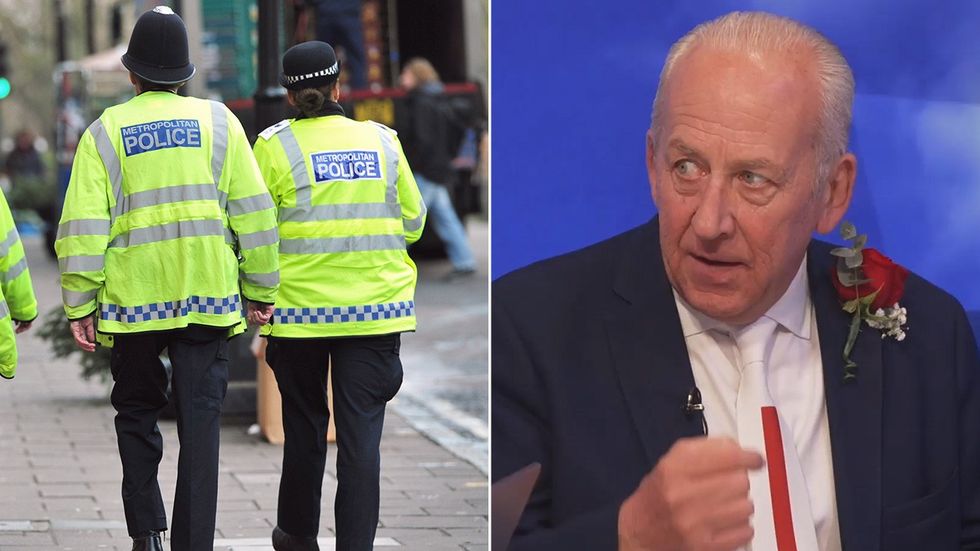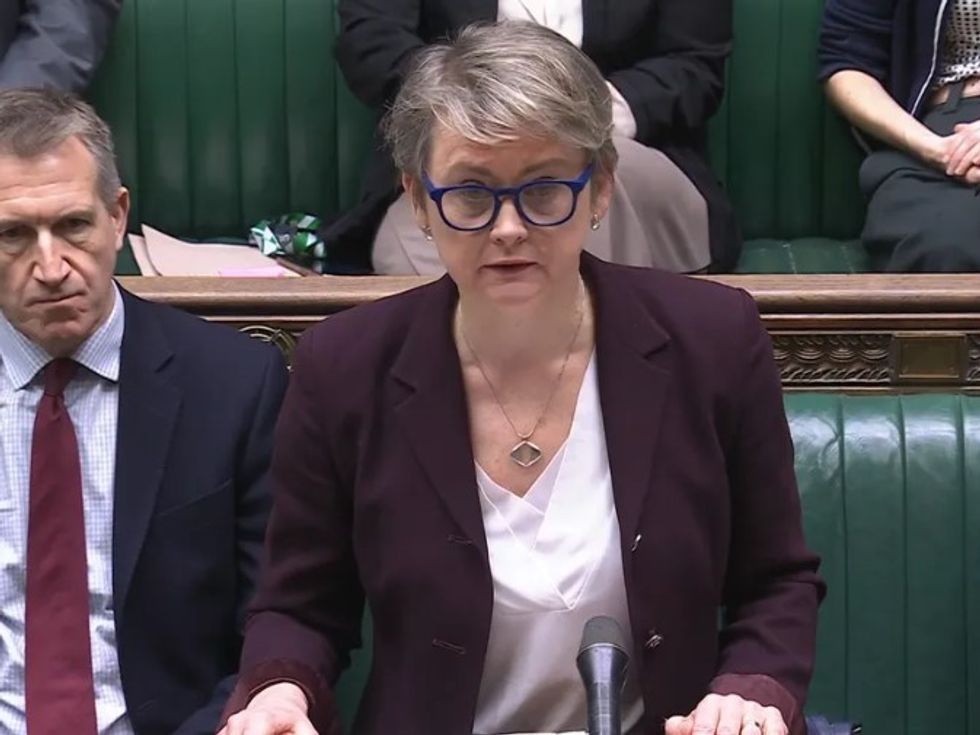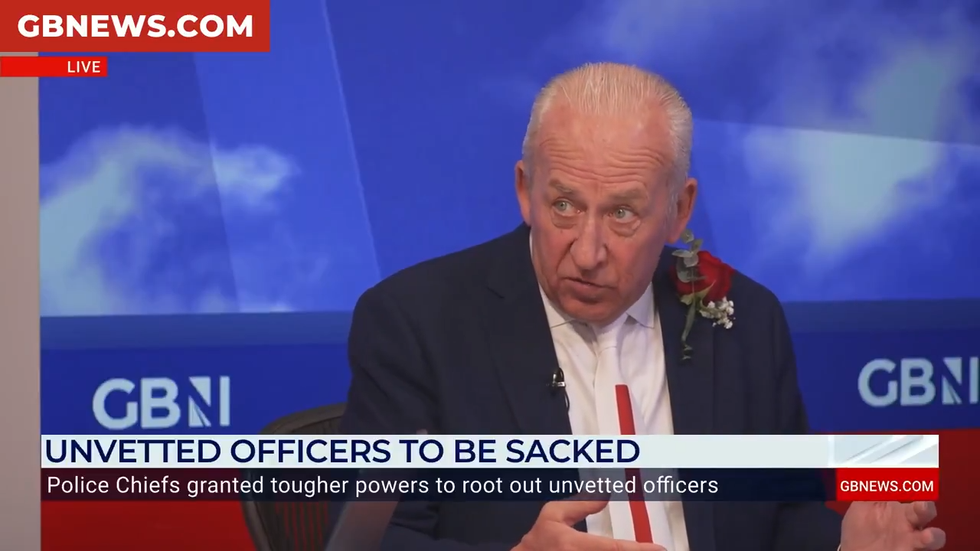‘Stony-silent’ Police Federation blasted over ‘absolutely appalling’ response to new powers
WATCH NOW: Peter Bleksley details the stringent vetting process he faced before his time in the force
Home Secretary Yvette Cooper says that the changes are 'essential' to 'restoring confidence in policing'
Don't Miss
Most Read
Trending on GB News
Former Scotland Yard Detective Peter Bleksley has hit out at the "stony-silent" Police Federation after chiefs were granted "tougher powers" to remove "unvetted" officers.
Police chiefs will be able to use the powers to crack down on unfit officers - meaning those who fail vetting checks will now automatically be sacked from the police force.
Backing the move, Home Secretary Yvette Cooper says that the changes are "essential" to "restoring confidence in policing".
Discussing the move on GB News, Bleksley claimed that the federation's silence on the matter is "appalling".

Peter Bleksley hit out at the 'stony silent' Federation for not speaking out on the new powers
PA / GB News
Speaking to Good Afternoon Britain hosts Tom Harwood and Emily Carver, Bleksley said: "It's going to be tested, this legislation - there will be many questions, I think there will be tribunals, court hearings and the such like.
"But one thing which I think is appalling, is the Police Federation of England and Wales have been stony silent."
Bleksley fumed: "You'd have thought they'd be clamouring to come on your station and argue their point, but there's been silence."
Discussing the decision to instil tougher powers on the federation now, Bleksley claimed that it is "a problem of the police's making", after cutting back on vetting for several years.
LATEST DEVELOPMENTS:

Home Secretary Yvette Cooper says that the changes are 'essential' to 'restoring confidence in policing'
CommonsBleksley explained: "It's a problem of the police's making, because in recent years, they thought it a good idea to cut back on vetting as part of their recruitment.
"And so, of course, many monsters found their way into policing who quite simply shouldn't have been anywhere near a warrant card or a police uniform.
"This is really Sir Mark Rowley's law, because he's been really pushing for this almost since day one of becoming commissioner."
Highlighting key questions which will arise from the legislation, Bleskley added: "This is not going to be a cure all - good cops hate bad cops and don't want to be anywhere near them. And of course, the public don't want bad, rotten police officers.
"But the questions that this legislation is going to throw up are who's going to be doing the vetting? What standards and at what level will the bar be set? In other words, what is acceptable and what is not acceptable for somebody to join the police?"

Bleskley told GB News that the federation's response has been 'appalling'
GB News
Noting the influence of the Police Federation, Bleksley concluded by claiming that they will want to "test the legislation" in the courts, if they believe an officer has been "unfairly dismissed".
Bleksley argued: "You can absolutely guarantee that the Police Federation will test this legislation when they think somebody has been unfairly dismissed, because this is the thing about automatic exclusion - that implies no testing that, no appeals process.
"In the past it's been appalling, because the bar was lowered so dramatically, the number of staff engaged in vetting procedures was reduced dramatically, and so consequently, many people just basically got ushered into policing when they shouldn't have been a million miles near it."
In response, a Police Federation for England and Wales spokesperson said: "The overwhelming majority of police officers for whom vetting is never an issue will appreciate the clarity which has finally come on this issue. Police officers take immense pride in the oath they swear, and they do not want to serve alongside anyone who fails to uphold the values and standards that are demanded from them."
"Being a police officer subjects those who take and uphold the oath to an unparalleled level of internal and external scrutiny. It is essential that a fair, lawful and transparent system is in place so that decisions are made on evidence not suspicion. Without the highest levels of trust in the process, there is a danger that wider morale will continue to erode. Any changes must not undermine the working trust between officers and the police leadership in general."








